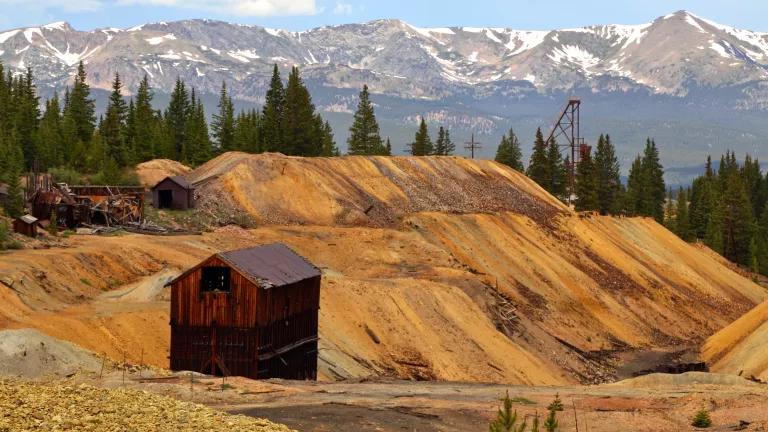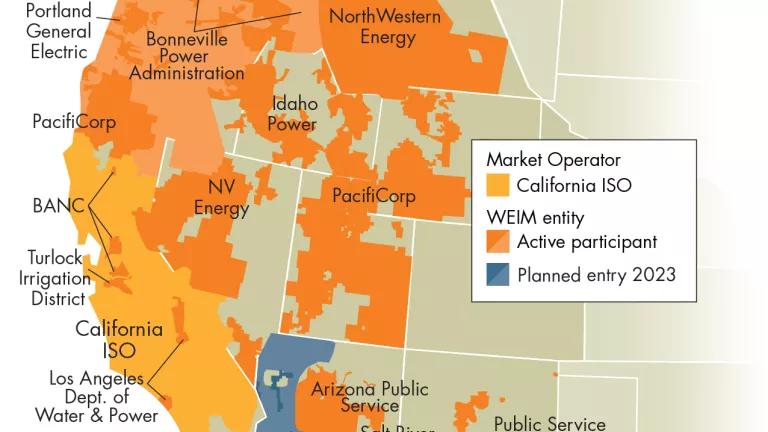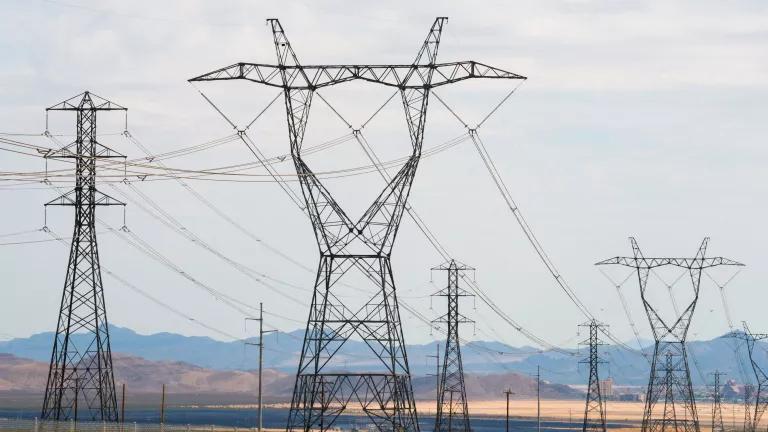Public Land Grab: Senate Bill Gifts Miners Pass to Pollute
Senators Catherine Cortez-Masto (D-NV) and Jim Risch (R-ID) have introduced legislation that makes it easier for mining companies and others to acquire rights to federal land and to be able to use them as dumping grounds and worse. The legislation reverses over 150 years of legal precedent and lifts one of the few substantive requirements of America’s antiquated and regressive general mining law.

Abandoned mine works and tailings in Leadville, CO.
Roy Luck via Flickr, CC BY 4.0
Thanks to the 1872 General Mining Law, hardrock mining has enjoyed a century-and-a-half of preferential treatment on public lands. Under the law, mining companies may stake a claim and explore for minerals on public land but can only mine and develop those claims if the lands contain a “valuable mineral deposit.” As long held by the Supreme Court and lower courts, without that discovery, mining claimants do not have right to occupy and use those lands for mining development. That made sense to Congress in 1872, as lands without locatable minerals were ear-marked for appropriation via settlement, to be developed by farmers, ranchers, towns, land-grant colleges, railroads, and other users–not mining companies. Today, our public lands are valued for different uses, such as for protecting our cultural heritage, water, wildlife, recreation, and renewable energy potential.
Enter Senators Cortez-Masto and Risch's companion bill to House Republican's H.R. 1 attack on our clean energy future. Under the proposed bill, the common-sense requirement that a prospector (literally anyone from an individual U.S. citizen to a multi-national mining company) must have discovered “valuable minerals” to enjoy the right to undertake significant, long-term, and highly damaging activities is excised altogether. Suddenly, despite 151 years of history, if this bill were passed, anyone could now go on public land, stake their claim, pay a modest annual fee, and be gifted the right to do anything “reasonably incident” to mining. That ranges from creating massive waste dumps covering thousands of acres, to constructing roads and industrial pipelines, regardless of the fact that these result in severe and permanent impacts to critical public values.
The bill represents an unfathomable giveaway of federal public lands to an industry responsible for contaminating the headwaters of 40 percent of western watersheds.

Looking north toward Coronado National Forest and the location of the proposed Rosemont Mine.
cobalt123 via Flickr, CC BY-NC-SA 4.0
According to proponents of this corporate handout, the need for this bill arises from a federal court of appeals decision known as Rosemont, as well as two subsequent federal court rulings, where a company proposed using invalid mining claims to dump enormous quantities of waste generated at the mine site. While U.S. mining law provides mine operators with the right to dump waste on nearby lands designated “mill sites,” the area of those lands—five acres per claim—was too small for the Rosemont mine. Their solution was to suggest to the Forest Service that they could use invalid mining claims covering thousands of acres for the waste. The problem with that was obvious and courts blocked them: holding an invalid mining claim confers no right to use or occupy the lands covered by the claim unless a valuable mineral is discovered.
The reason any of this is contentious is that prior to Rosemont, mine companies often acted with impunity, ignoring the plain text of U.S. mining laws and over 100 years of Supreme Court precedent, dumping waste illegally on lands they had no right to occupy. Instead of proposing a solution that doesn’t trample on federal public lands and the taxpayers who own them, this bill instead further weakens U.S. mining law by making industry's historically illegal activity legal. In doing so, they’ve also read into the Rosemont decision a restriction that doesn’t exist—in no way does Rosemont prevent mines from disposing of their waste, it just prevents companies from abusing the mining claims system, to deal with waste disposal challenges.
Two simple hypotheticals demonstrate how regressive the ideas contained in his bill would be.
- The Rosemont situation itself is just the first. By claiming federal public lands for next to nothing via our archaic mine claims process, a company would acquire the right to occupy and destroy those lands with mine waste that will permanently alter the character of the landscape, destroy invaluable cultural resources, the usability of public lands, and cause permanent environmental harm.
- Second, and in direct conflict with the bill’s proponents’ assertion that it supports our nation’s renewable energy needs, the law could be weaponized against such energy development as a bad faith tool to block solar, wind, or geothermal projects sited on federal public lands. If that seems far-fetched, it isn’t—a former U.S. senator tried to stop creation of Grand Canyon National Monument (now National Park) by staking mining claims. The requirement for finding valuable minerals—which this bill seeks to overcome—prevented those claims from being validated and bestowing rights to occupy and intensively develop the land. There is no reason to think that future actors, upon learning of a solar or wind project they oppose, would not go out and stake a mining claim on the project site or in the path of a key transmission line to the site.
Mining on federal public lands will always be contentious. No other prospective industrial activity enjoys the level of legal endorsement provided under U.S. laws and it has left behind a damaging and toxic legacy. There is also no question that the mineral challenges posed by the global energy transition are real and require pressing action. But there is also no question that we cannot further sacrifice our increasingly fragile ecosystems—especially in the drought-plagued West—to the whims of some of the world’s largest and most infamous polluters.
Our archaic mining laws need reform. That means giving the communities and surrounding ecosystems likely to be impacted by future mining the tools, protections, and assurances necessary to ensure that mining’s toxic legacy will not deepen the environmental catastrophes it has already wrought. For domestic mining to gain any level of acceptance, it must embrace a responsible and modern approach to managing, mitigating, and remediating its environmental harms. This handout to polluters does the exact opposite.




